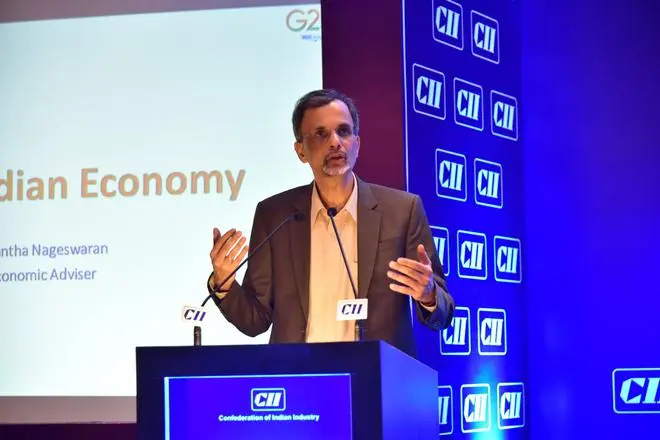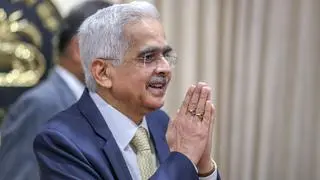India can grow for a prolonged period without running into overheating problems, Chief Economic Advisor V Anantha Nageswaran said on Friday. He was also optimistic about the growth rate going up to 7 per cent during the current fiscal.
“If you run the machinery for a long period, it tends to get overheated. That is the law of physics. But we got overheated in the past because of the speed with which we grew. But this time, because of all the various measures we took in the last eight to nine years, we feel that the machine can run for 8-10 years without it getting overheated. That is the hope we have at the moment for the economy,” he said while addressing members of industry chamber, CII, at Lucknow.
After recording a growth rate of 7.2 per cent in FY23, the economy is estimated to slow down a bit to 6.5 per cent in FY24 with some agencies projecting an even lower growth. However, Nageswaran said it could go up. “If you look at the world, everybody says India‘s growth rate will be at least 6 per cent. I feel it will be closer to 6.5-7 per cent. The reasons — one is that companies are ready to invest; and number two, the digital transformation,” he said.
More steam left
Further, Nageswaran added that the economy is in a state of autopilot, bouncing back impressively after the pandemic. Sharing his optimism on the medium-term growth prospects, he said the sound macroeconomic policies of the government, structural reforms such as GST, IBC etc, thrust on infrastructure and digitalisation has ensured that the Indian economy can grow for a longer period.

Chief Economic Advisor V Anantha Nageswaran | Photo Credit: SPECIAL ARRANGEMENT
“Between now and 2030, based on what we have done so far, without even assuming that further reforms will be done, I can say that we have the potential to grow steadily between 6.5 per cent and 7 per cent, and if we add the additional reforms on skilling, factor in market reforms among others, we can go up to 7-7.5 per cent and possibly even 8 per cent,” he added.
Alluding to the need for fiscal prudence for fostering macroeconomic stability, Nageswaran said better credit rating translates into lower cost of borrowing by the government, thus contributing to a fiscal stimulus for the economy. “Good fiscal health on our part is a good fiscal stimulus for consumers, and we are working towards it by focusing on measures such as asset monetisation, among others. The natural rate of growth economy should help as well,” he added.







Comments
Comments have to be in English, and in full sentences. They cannot be abusive or personal. Please abide by our community guidelines for posting your comments.
We have migrated to a new commenting platform. If you are already a registered user of TheHindu Businessline and logged in, you may continue to engage with our articles. If you do not have an account please register and login to post comments. Users can access their older comments by logging into their accounts on Vuukle.